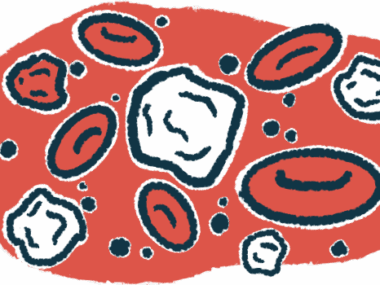MG Patient Successfully Treated with Weekly Blood Purification Therapy, Case Report Says
Written by |

Japanese researchers wrote about a myasthenia gravis (MG) patient who showed long-term improvement in disease symptoms after he was treated with blood purification therapy.
The case report, “A Case of Anti-MuSK Antibody-positive Myasthenia Gravis Successfully Treated With Outpatient Periodic Weekly Blood Purification Therapy,” appeared in Internal Medicine, the journal of the Japanese Society of Internal Medicine.
Myasthenia gravis is an autoimmune disorder characterized by the production of antibodies against the neurotransmitter acetylcholine receptor (AchR), a crucial protein for proper muscle function.
However, about 20 percent of MG patients do not exhibit anti-AchR antibody production. Of these, approximately 70 percent produce antibodies against muscle-specific tyrosine kinase (MuSK). Anti-MuSK antibodies affect clustering of AchR, leading to abnormal neuromuscular junctions.
MG patients with anti-MuSK antibodies show variable responses to commonly used therapies, including oral, high-dose prednisolone (a corticosteroid), Rituxan (rituximab), or cholinesterase inhibitor, which prevents the breakdown of acetylcholine.
Conventional immunosuppressant medications are effective in most patients, but others respond poorly and end up discontinuing these therapies due to adverse effects.
The authors of the case study reported the case of a 37-year-old man who developed dysphagia (difficulty swallowing), muscle weakness, and dyspnea (shortness of breath) within four months. The progression of dyspnea ultimately led to his hospitalization.
Medical exams revealed bilateral ophthalmoplegia — weakness of eye muscles — and dysarthria (weakness in muscles used for speech), as well as reduced lung capacity and elevated anti-MuSK antibody levels in the blood. Treatment with plasma exchange replaced by albumin greatly improved his symptoms, and oral prednisolone at 60 mg was then prescribed.
However, the patient suffered from relapses starting one month after the plasma exchange. Although subsequent treatment helped maintain a stable physical state for six months, the patient had severe bacterial pneumonia three times within two years.
Respiratory function worsened, even though the prednisolone dose was reduced and his immunosuppressant medication was switched. Two to four sessions of plasma exchange every two months also did not help. Anti-MuSK antibodies remained elevated.
The patient then underwent outpatient plasma exchange therapy once a week or twice every three weeks. This was done through a shunt created in his right forearm. The therapy improved symptoms for about four months, and was then changed to double-filtration plasmapheresis (DFPP), as blood purification therapy.
The stability of the MG patient’s symptoms allowed doctors to reduce the dosages of prednisolone and tacrolimus, an immunosuppressant. However, his dyspnea deteriorated yet again.
The improvement of dyspnea was finally achieved with weekly alternations between plasma exchange and DFPP. The variable level of anti-MuSK antibody was also eliminated. DFPP was used “to prevent transfusion-transmitted diseases and to reduce medical costs,” according to the authors.
The patient was then followed for five years, and showed no significant side effects.
“To our knowledge, this is the first report of a patient with anti-MuSK antibodies who was successfully treated by periodic weekly blood purification therapy with alternative [plasma exchange] and DFPP, using an internal shunt created in his right forearm,” the case report stated.
“These findings suggest that periodic weekly blood purification therapy with alternative [plasma exchange] and DFPP may be a helpful and relatively safe treatment for MuSK-MG.”



Leave a comment
Fill in the required fields to post. Your email address will not be published.